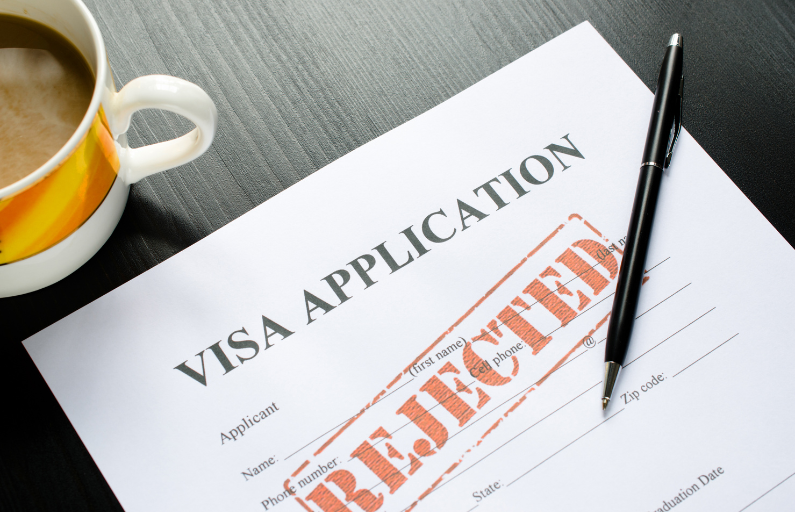Visa applications may be demanding, and experiencing refusal can be frustrating. Understanding the common causes of visa refusals may boost your chances of acceptance. This essay will look into the typical errors that lead to visa rejections and suggest solutions to prevent them, particularly with the aid of migration specialists.
Common Reasons for Visa Refusal
- Incomplete or Incorrect Application Forms
One of the biggest causes of visa refusal is submitting incomplete or erroneous application forms. Visa officers expect all areas to be filled out accurately. Even slight flaws, such as incorrect personal data or mismatched information among papers, might lead to refusal. Therefore, it’s vital to double-check your application before submission.
- Insufficient Financial Evidence
Visa officials seek confirmation that you can sustain yourself financially throughout your stay. Providing insufficient financial evidence is a typical basis for refusal. Applicants should present current bank statements, proof of employment, and other appropriate financial papers to establish their capacity to fund travel expenses14. For instance, while flying to a Schengen nation, you may need to demonstrate a minimum amount in your bank account for each day of your stay.
- Lack of Travel Insurance
Many nations demand evidence of travel insurance covering medical emergencies and repatriation. Not having appropriate coverage might result in a visa denial. Ensure that your travel insurance coverage matches the destination’s particular standards and covers the whole period of your stay.
- Unconvincing Travel Itinerary
An unclear or unrealistic trip plan might raise red flags for immigration authorities. They need to see well-organized plans that match the aim of your visit. A thorough itinerary—including airline tickets, housing arrangements, and scheduled activities—can help reduce anxieties. Avoid placeholder bookings; actual reservations are required.
- Previous Visa Violations
A history of visa breaches or overstays might significantly harm your present application. Authorities evaluate historical conduct to measure dependability. If you have past visa difficulties, be prepared to explain them and show rectification efforts. Transparency is crucial in these circumstances.
- Weak Ties to Home Country
Visa authorities require confirmation that you will return home following your stay. Insufficient proof of ties—such as solid work, property ownership, or family connections—can lead to rejection. Providing documentation that indicates significant links may boost your case.
- Criminal Record
Having a criminal background may negatively influence your visa application. Consulates typically perceive applicants with prior convictions as possible security concerns. If relevant, be prepared to give context and evidence proving rehabilitation.
- Health Concerns
Certain health issues or low vaccination status might lead to visa refusal, especially in light of current global health disasters like COVID-19. Prior to applying, ensure that you fulfil all health standards stipulated by the target country.
- Passport Issues
An invalid or expired passport will immediately lead to visa refusal. Some nations have special requirements regarding passport validity; for example, a passport must generally be valid for at least six months after your scheduled departure date from the target country.
How Migration Consultants Can Help?
Engaging with migration consultants may speed the visa application process significantly:
- Expert Guidance: Migration experts are well-versed in immigration rules and may give specialised advice depending on specific circumstances.
- Document Preparation: They help prepare and evaluate the relevant documents, assuring completeness and correctness.
- Interview Preparation: Consultants typically conduct practice interviews and recommend ways to present themselves during the interview confidently.
- Handling Complex situations: For candidates with past rejections or problematic situations, advisors might advise methods on how best to approach these challenges.
Conclusion
Visa applications are complex procedures laden with possible problems that might lead to refusal. You may boost your chances of a successful application by recognising frequent causes for refusal and taking proactive steps—such as consulting migration consultants. Always remember that diligent planning and attention to detail are your best friends when handling the complexity of foreign travel documents.

